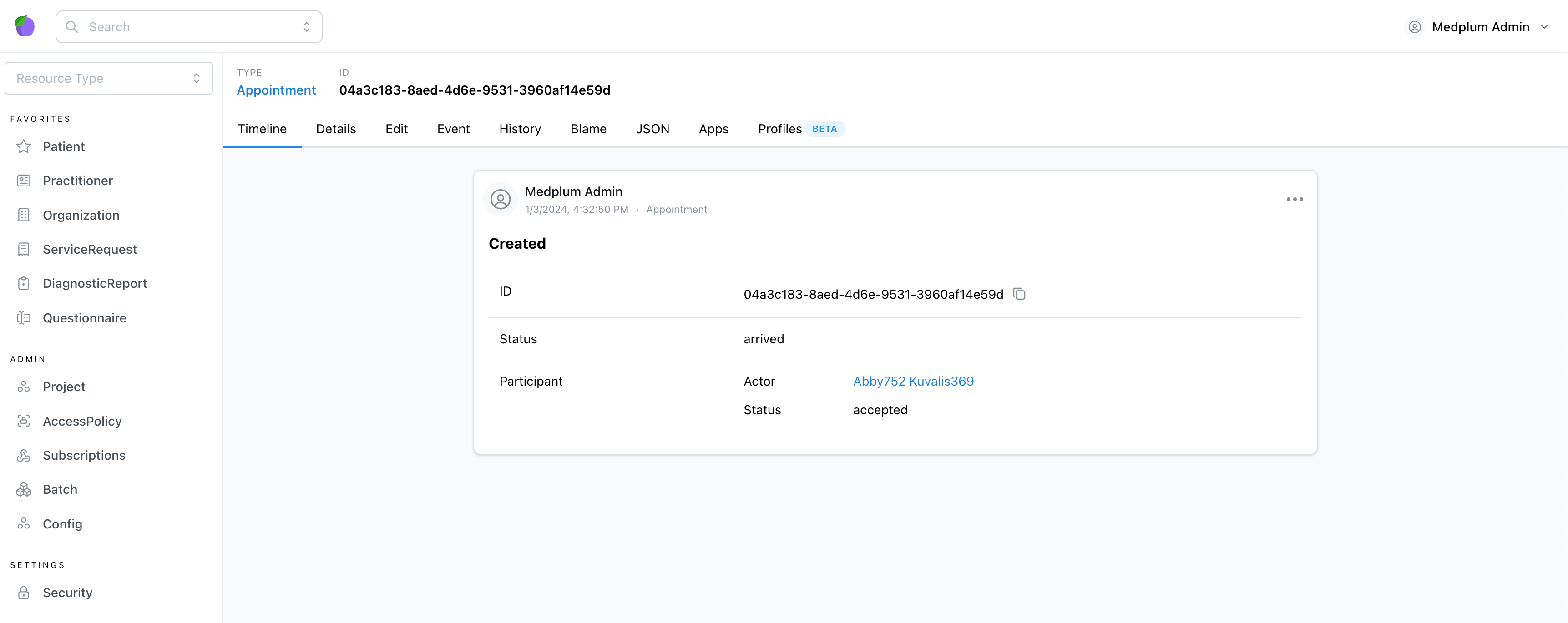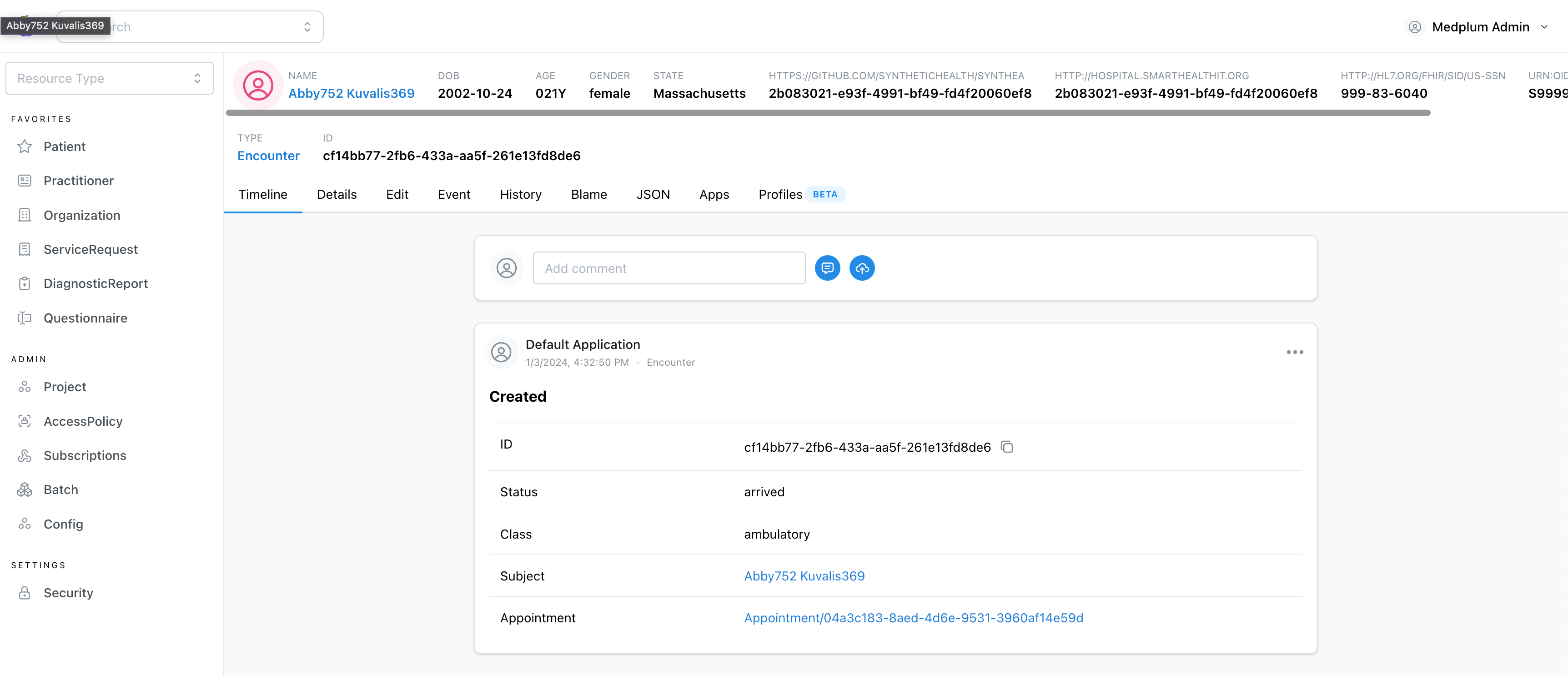Create a new subscription
For this example we'll create a FHIR Subscription that ensure that an
Encounter is created automatically when an Appointment
has its status set to arrived.
The subscription handler
Create a new file src/subscriptions/arrived-appointments.ts and paste the following code:
import {
Appointment,
Practitioner,
Reference,
build,
findReference,
isReferenceOf,
reference,
} from "@bonfhir/core/r4b";
import { FhirSubscription } from "@bonfhir/subscriptions/r4b";
export const arrivedAppointments: FhirSubscription<Appointment> = {
criteria: "Appointment?status=arrived",
reason: "Create encounters for arrived appointments",
endpoint: "arrived-appointments",
async handler({ fhirClient, resource: appointment, logger }) {
// This is just a precaution
if (!appointment || appointment.status !== "arrived") return;
// Check if the appointment already has an encounter associated
const existingEncounters = await fhirClient.search("Encounter", (search) =>
search.appointment(appointment),
);
if (existingEncounters.searchMatch().length > 0) return;
// Create the new encounter
// Note that we're using the build function from @bonfhir/core to create the encounter.
// We reference the appointment, and copy the appointment's subject and participants as well.
const newEncounter = build("Encounter", {
status: "arrived",
class: {
system: "http://terminology.hl7.org/CodeSystem/v3-ActCode",
code: "AMB",
display: "ambulatory",
},
appointment: [reference(appointment)],
subject: findReference(
appointment.participant.map((p) => p.actor),
"Patient",
),
participant: appointment.participant
.filter((participant) =>
isReferenceOf(participant.actor, "Practitioner"),
)
.map((participant) => ({
individual: participant.actor as Reference<Practitioner>,
type: participant.type,
})),
});
const result = await fhirClient.save(newEncounter);
logger?.info("Created encounter", result);
},
};
Also, we need to update the src/subscriptions/index.ts file to add the new subscription to the Lambda handler:
// ...
import { arrivedAppointments } from "./arrived-appointments.js";
export const handler = fhirSubscriptionHandler({
// ...
subscriptions: [communicationRequests, arrivedAppointments],
});
Run the registration
Since we added a new subscription handler, we need to make sure it is registered properly. Assuming the AWS Local server is still running, run the following command in the project directory:
- npm
- Yarn
- pnpm
npm run register-subscriptions
yarn register-subscriptions
pnpm run register-subscriptions
You should see the following output in the AWS Local Server process:
POST /fhir/subscriptions/register (λ: subscriptions)
Registering subscriptions...
Subscription Create encounters for arrived appointments for Appointment?status=arrived on http://host.docker.internal:6000/fhir/subscriptions/arrived-appointments registered.
(λ: subscriptions) RequestId: b025100e-0b34-4e59-8fae-caad60046545 Duration: 139.96 ms Billed Duration: 140 ms
Test the subscription
Head over to Medplum and create a new appointment with the status arrived.
You can even include participants!

Then search for encounters and look at the last one updated - you should see the one that the subscription just created!

Congratulation! You have now created your first subscription.